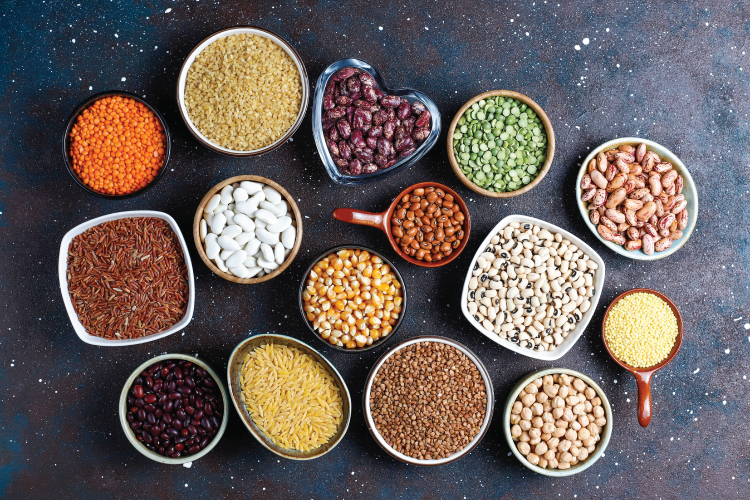How to Manage Acidity During Festive Seasons
May 18, 2023
Managing acidity during festive seasons can be challenging due to indulgence in rich and spicy foods which might cause stomach burning. However, with some mindful strategies, you can minimize the occurrence of acid reflux and enjoy the festivities.
Here are some tips to manage acidity during festive seasons in the Indian context:
1. Moderation is key:
While it's tempting to indulge in festive treats, try to maintain moderation in your food intake. Opt for smaller portions and avoid overeating, as large meals can trigger stomach burning.
2. Choose lighter options:
Look for lighter and less spicy dishes on the festive menu. Avoid deep-fried, oily, and heavily spiced foods, as they can increase acidity. Opt for grilled, steamed, or baked options instead.
3. Be mindful of trigger foods:
Identify your personal trigger foods that tend to worsen your acid reflux symptoms. Common triggers include spicy foods, citrus fruits, chocolate, fried foods, and carbonated drinks. Limit or avoid these foods during the festivities.
4. Balance your plate:
When enjoying a festive meal, aim to have a balanced plate. Include a variety of non-acidic vegetables, lean proteins, and whole grains. These choices can help support healthy digestion and reduce acid reflux.
5. Chew thoroughly and eat slowly:
Take your time to chew your food thoroughly and eat slowly. This aids digestion and prevents overeating, reducing the likelihood of acid reflux.
6. Stay hydrated:
Drink plenty of water throughout the day to stay hydrated and maintain optimal digestion. Avoid excessive consumption of sugary drinks, alcohol, and caffeinated beverages, as they can trigger acid reflux symptoms.
7. Practice portion control:
Festive seasons often involve multiple meals and gatherings. Be mindful of portion sizes and resist the temptation to overeat. Consider using smaller plates to help control portion sizes.
8. Manage stress:
Festive seasons can be stressful, which can exacerbate acid reflux symptoms. Prioritize self-care, practice stress management techniques such as deep breathing exercises, and meditation, and engage in activities that help you relax and unwind.
9. Stay active:
Regular physical activity can aid digestion and promote overall well-being. Try to incorporate light exercises or go for a walk after meals to help reduce the chances of experiencing acid reflux.
10. Maintain a routine:
Festive seasons can disrupt daily routines, including meal times and sleep schedules. Try to maintain a consistent routine as much as possible, as irregular eating and sleeping patterns can contribute to stomach burning.
Remember, these tips are general guidelines, and it's important to listen to your body and make choices that work best for you. If you have severe or persistent acid reflux symptoms, it's advisable to consult with a healthcare professional for personalized advice and appropriate treatment. There are several foods that can help manage acid reflux symptoms along with home remedies for acidity.
Here are some options for the best food for acidity:
1.Oatmeal:
Plain oatmeal is a good choice for breakfast as it is low in acidity and high in fiber. Avoid adding acidic fruits or excessive sugar.
2. Ginger:
Ginger has anti-inflammatory properties and can help soothe the stomach. You can consume it in the form of ginger tea, grated ginger in meals, or as a spice in dishes.
3. Yogurt:
Plain, unsweetened yogurt can have a cooling effect on the stomach and provide probiotics that promote healthy digestion. Avoid adding acidic fruits or excessive sugar.
4. Vegetables:
Non-acidic vegetables such as broccoli, cauliflower, green beans, leafy greens, and potatoes are generally well-tolerated by individuals with acid reflux. Avoid adding spicy or acidic sauces.
5. Whole grains:
Opt for whole grain options like brown rice, whole wheat bread, and whole wheat pasta. These are generally less likely to trigger acid reflux compared to refined grains.
6. Lean proteins:
Choose lean sources of protein like skinless chicken, turkey, fish, and tofu. Avoid fried or fatty meats as they can worsen acid reflux symptoms.
7. Almonds:
Almonds are a good snack option for acid reflux as they are low in acidity. However, be mindful of portion sizes as they are high in fat.
8. Herbal teas:
Chamomile tea, licorice tea, and fennel tea are known to have soothing properties that can help alleviate acid reflux symptoms.
It's important to note that triggers and tolerances can vary among individuals. Pay attention to your own body's response and identify which foods work best for you. Additionally, it's always a good idea to consult with a healthcare professional or a registered dietitian who can provide personalized dietary recommendations based on your specific needs.
This festive season, don’t let the fun stop with stomach burning choose Gas-O-Fast asli jeera for instant relief!
Disclaimer This blog solely intended for the educational/informational/awareness purposes and is not a substitute for any professional medical advice, diagnosis or treatment. Please consult your doctor/healthcare professional before acting on the information provided on the blog. Reliance on any or all information provided in the blog, is solely at your own risk and responsibility. Mankind Pharma Limited shall not be held liable, in any circumstance whatsoever.
